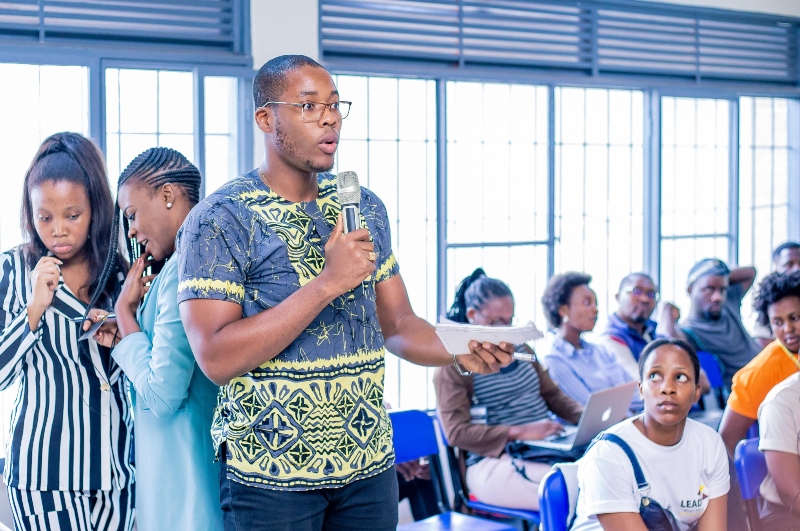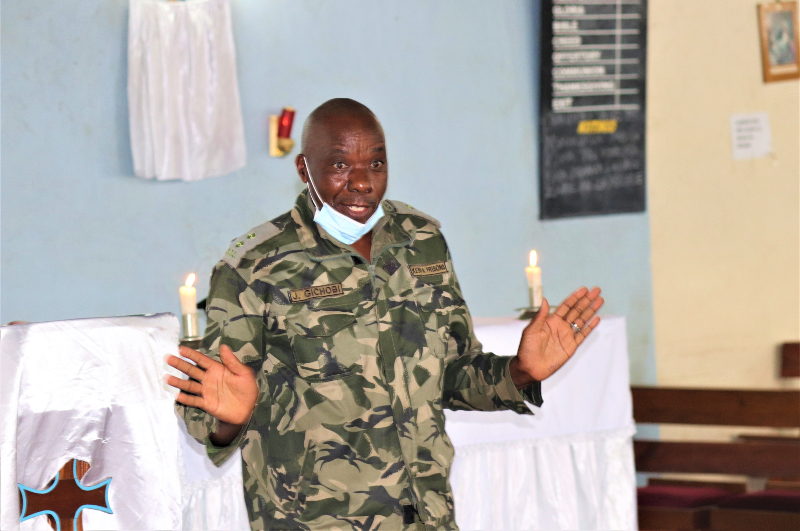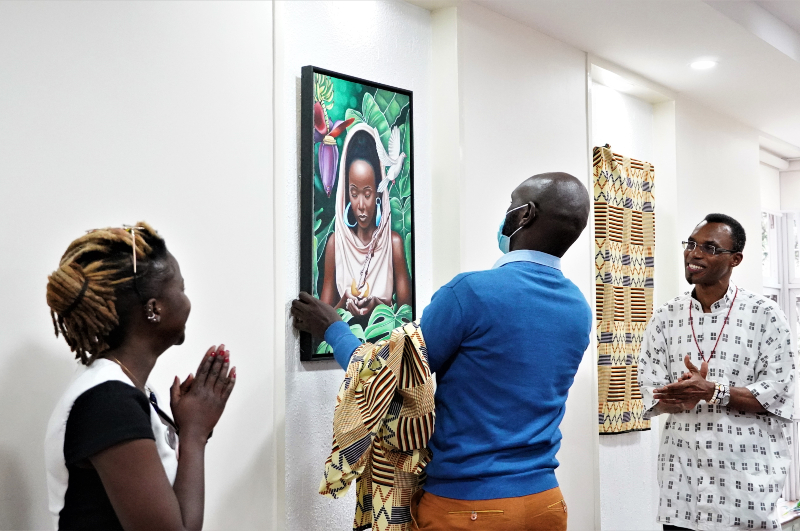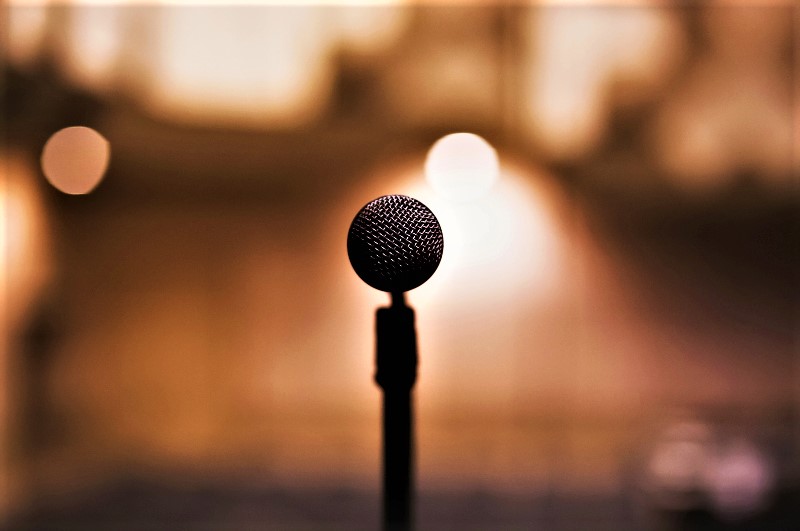In Africa, August is the Month of the Youth. It is a time to acknowledge the gift of young people especially in this continent that is predominantly young.
The fourth Apostolic Preference of the Jesuits, call us Jesuits and our collaborators to “accompany young people in the creation of a hope-filled future. The youth are not a passive lot being driven to some dream future. We are accompanying them as a major force in bringing change and tackling global issues, and serve as the engine room for driving Africa’s development agendas. This is a recognition that their role in imagining a hope-filled future is now and not sometime in the future. It also means that we need youth inclusiveness in the development process in our quest to bring about change and transformation. They need to be involved in creating “the Africa we want” and the world we want.
This year, we marked the celebration of International Youth Day at a time when the world is working together day and night to address the impact of the COVID-19 pandemic. The theme for this year’s International Youth Day is “Transforming Food Systems: Youth Innovation for Human and Planetary Health”. The Jesuit Justice and Ecology Network-Africa (JENA) believes that youth can and already play a role in innovating for human and planetary health. JENA believes that youth have capacity and innovative qualities for transforming food systems in Africa and to prepare a healthier and more just Africa. To live up to its commitment to support young people, at the end of September, JENA is hosting a young people’s Indaba. This Indaba will be a roundtable dialogue action for young economists, entrepreneurs, and changemakers in Africa in response to Pope Francis’ call to unite leaders from all sectors to co-create concrete action initiatives towards a Regenerative African Economy and Civilization. An Indaba, among Bantu peoples of southern Africa, is a meeting to discuss a serious topic. In this time of the COVID-19 pandemic, young people will gather and have conversations about how they envision a regenerative economy that Africa and the world need. Young people shall develop and send a message to African and world leaders, economists, entrepreneurs, workers, and citizens of Africa and the world about the “Africa we Want.” Young people will gather to share the joys, the experiences, the hopes, and challenges of Africa by listening to each another, to others and to their hearts. The young people will gather with a conviction that a better world cannot be built without a better economy. The economy is so important for the lives of people and the poor that we all need to be concerned with it. Young people will gather for this reason, in the name of the young people, all Africans and all humanity especially, the poor of the Earth.
Young people will also meet to offer proposals in regard to how Africa can heal from the ravages of COVID-19 and build a better future. COVID-19 has once again revealed Sub-Saharan African social and economic vulnerabilities. Since colonial times, most of Sub-Saharan Africa has virtually been driven by a growth and development model based on foreign capital and external markets for its commodities. Almost all of Africa’s growth waves are primarily based on commodity interests of increasing the exports of tropical crops, minerals and gas facilitated by improving terms of trade. This colonial model has remained intact albeit with different actors in the global supply chain. Recently, off a global super-cycle, the decade 2000 to 2010 delivered Africa’s strongest growth decade on record with annual growth rates averaging 5.5%. In 10 short years, the African narrative had swung from the “hopeless continent” to “Africa rising”. This growth pattern looked like earlier episodes of rapid economic expansion in the 1920s and 1950s–1960s.
But experience has shown that this growth pattern is extremely vulnerable to both internal and external economic shocks, like the current COVID-19 shock, that can rapidly reverse much of the accumulated welfare gains. The overreliance on revenues from natural resource extraction has only led to too little expansion of gainful employment in grassroots manufacturing firms with much smaller profit windows than big mining or other commodity producing companies, which are usually foreign owned. It has only but stimulated ‘jobless’ growth, led to the despoiling of the environment and conspicuous lavish consumption for the elite few. Therefore, on the whole what has remained of Africa is increasing poverty and deepening inequality.
Economic development and poverty reduction cannot be sustained with continued dependence on (colonial) economic models now driven by multinational companies and based on extraction and export of low-value primary commodities extracted by foreign corporations that also deplete and plunder the natural environment. Africa needs an endogenous development model and poverty eradication strategy that ensures a relatively even distribution of the gains in income growth. The UN High Level Panel on the development agenda after 2015 identifies four priorities to transform economies, like African ones, for shared prosperity, decent jobs and inclusive growth. First, is creating opportunities for productive jobs and secure livelihoods that make growth inclusive and reduce poverty and inequality. Second is raising productivity to accelerate and sustain growth everywhere by intensifying agriculture, developing industry, and expanding services—in whatever mix matches a country’s endowment. Third is setting an environment for business to flourish and connect through value chains to major markets, both at home and abroad. And fourth is supporting new ways of producing and consuming that sustain the environment, what this project refers to as “regenerative value creation.”
Therefore, this Indaba will build on the life-giving Economy of Francesco (EoF) framework for an inclusive economy and form of development anchored in the integral development model. Pope Francis calls us “to seek new ways of understanding the economy and progress” and to develop a better financial and economic system for the 21st century.” In His first Apostolic Exhortation Evagelii Gaudium in 2013 He sharply condemns an “economy of exclusion and inequality and proposes a framework for one that can safeguard the value of human life saying “thou shalt not kill” to an economy of exclusion and inequality. Africa and its external partners need to co-create an economy that helps to regenerate all interconnected systems of humans and societies, nature and its species. Therefore, this Indaba seeks to propose ways of returning severely degraded & highly interactive systems to health that can assure our survival and also become the foundation on which we sustainably thrive as people and societies, economies and businesses.
The Africa Regeneration Indaba for Young People to explore and imagine how Africa can create such an economy. The Indaba will also propose ways to make the “Africa Rising” narrative meaningful for its people and move away from the neoliberal driven jobless growth it has ‘celebrated’ whose weaknesses and inadequacies have been exposed by the COVID-19 economic shock. The Indaba will further explore how Africa can engage a type of development that can eradicate poverty, is inclusive (for women and young people in particular), equitable (leading to shared prosperity) and sustainable (particularly in terms of protecting human health and ecosystems). Effective governance is critical in this regard founded on participation, accountability, transparency, and respect for the rule of law.
This multidisciplinary colloquium will explore these and various other disparate issues with a view to developing a systematic understanding of the ways in which African policymakers, politicians, businesses and other actors could shape, challenge, and advance the knowledge, rules, and practice on inclusive and regenerative African development. This will involve uncovering and situating African perspectives, concerns and practices within, and vis-a-vis the broader debate on African development and the role of Africans and Africa’s external partners in that process.







